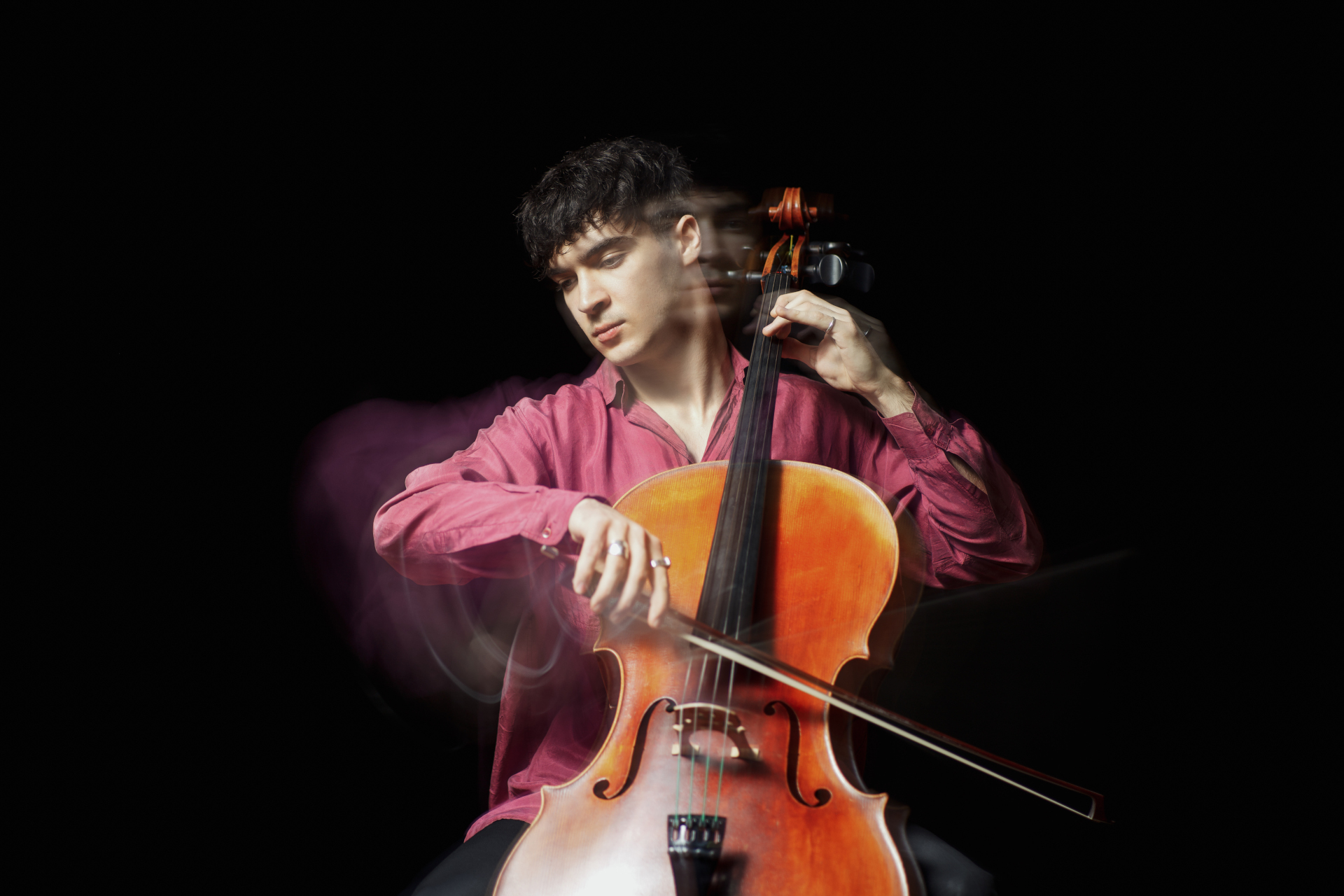
photo: © Clara Evens
This twenty-one-year-old cellist attracted the attention of the world public by entering the final and winning fifth place at one of the most prestigious competitions – “Queen Elisabeth” in Brussels. The artist captivates with extraordinary talent, clear, precise movements of the bow, in harmony with his body, like a ballet dancer, a piercing and refined sound and above all, an authentic and natural expression on stage, which leaves no one indifferent. Coming from a musical family, he started playing the cello at the age of four, which today is his life’s vocation and faithful companion. Apart from the fact that many people in Serbia know about him as the winner of the “Art Link Société Générale” prize and recognition for the most promising young musician in 2018 and the winner of the first and special prizes at the Republic Competition in Serbia in 2010, 2012, 2014 and 2016, they remember him for his great successes in the world, as well. Among his numerous recognitions are the special prizes of the company AENA at the renowned competition “Pablo Casals” in Spain, the second prize at the International Competition “Anna Kull” in Austria, the third place at the “Felix Mendelssohn” competition, as well as the fifth place at the “Queen Elisabeth” competition, where among 66 candidates he entered the final with 12 participants. He also shows his versatility through collaboration with Jacopo Godani and ballet dancers in contemporary theater projects. Since 2017, he has been studying in Leipzig at the University of Music and Theater Felix Mendelssohn Bartholdy in the class of Professor Peter Bruns.
“QUEEN ELISABETH” COMPETITION
Performing at this competition was an incredible experience that changed my life completely! It was a huge stepping stone in my career, thanks to which I came out of anonymity in the Western European world and in general on the world stage of classical music. Even as a child, with humble beginnings, I had that dream, and now it’s a reality and I’m overjoyed about it. I feel a responsibility to continue in that direction. Participation in that competition was very spontaneous. One classic way to win a prize in such a competition is to first “go out” to smaller competitions and collect the first prizes, and when one standard repertoire is performed 10 to 15 times on stage, then the candidate is considered ready to apply for a big competition like this one. However, I skipped all that and decided to go straight to the biggest one. In the final, I played Shostakovich’s Second Concerto, a work I had never played with an orchestra, which was a big risk. I can say that here in Serbia, Shostakovich is an idol, and taking that into account, I was able to bring from my country an understanding of such music. In the semi-finals, I played his Sonata for cello and piano and Haydn’s Concerto in D major, which I had the opportunity to perform with the “Stanislav Binički” orchestra a month before the competition. So, all the experiences from my previous life coincided for that competition; the timing was fantastic. Noting that I was the youngest finalist and prize winner in that competition, no doubt had a huge impact on my career. I can say that it is a fantastic, unforgettable experience, especially when I remember those weeks before the final round, when the participants are in complete isolation, without phones and internet. The finalists have a few days to prepare the assigned piece by the famous composer Jörg Widmann, which was technically very demanding. The festival lasts six days, I played the first night, the composer and the orchestra manager came to see off the premiere together. After the concert they congratulated me, it was all new for me and a fantastic experience.
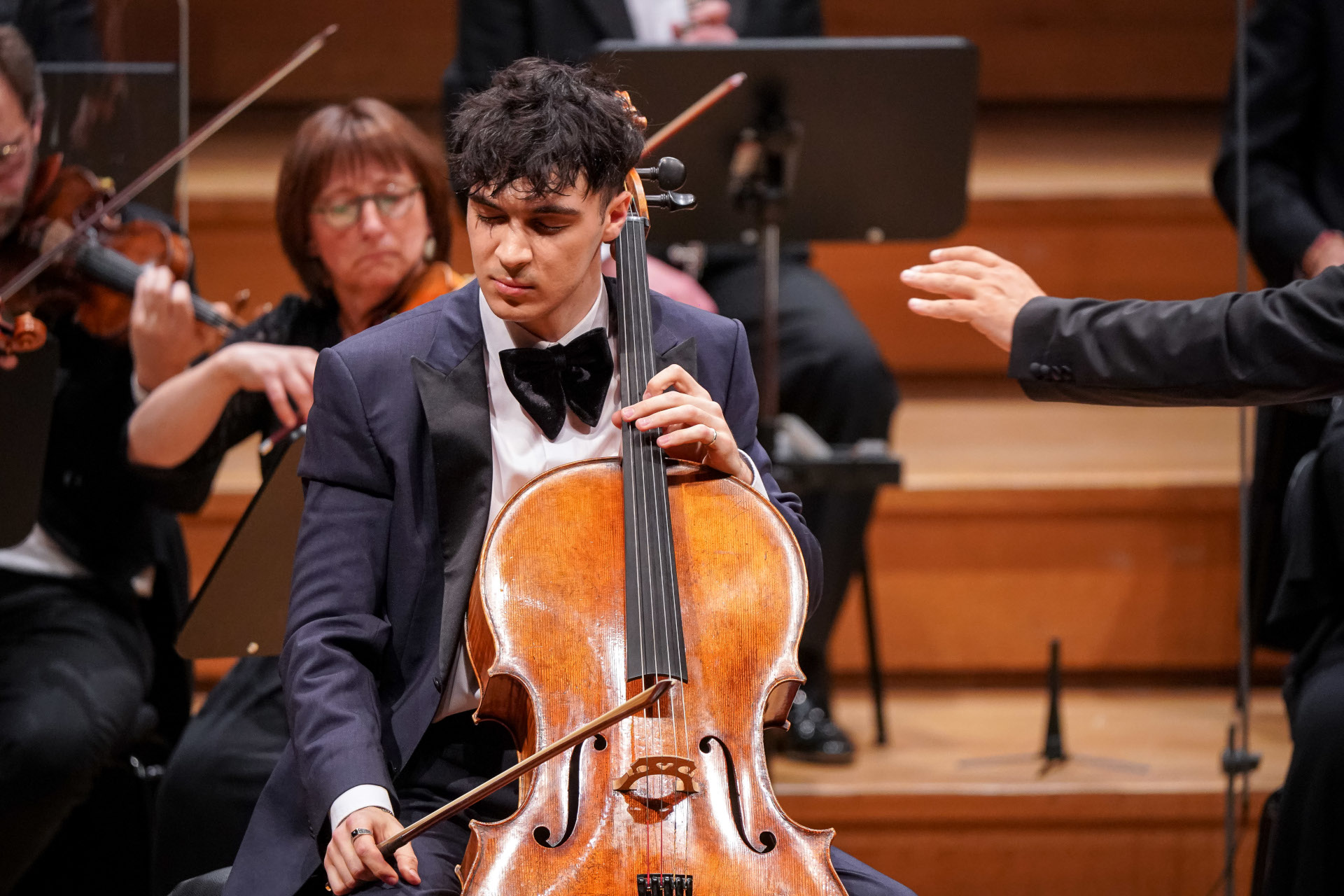
photo: © Derek Prager
BEGINNING – EDUCATION
My grandmother always said that you cannot choose two things – where you will be born and who your parents are. I was very lucky that my parents are musicians and that they set me on the right path. My father is a conductor, my mother is a solfeggio teacher, and they both recognized the talent in me since my early childhood. I chose the cello because my mother played that instrument. Her teacher, however, moved away and she enrolled in piano, then music theory, but her great desire remained the cello, and that’s how my beginnings came about in the fourth year. Although I have been playing since I was a child, I consider my real beginning to be the time when I started working with professor Judit Josifoska at the age of ten. She is a fantastic pedagogue who has vast experience with young cellists, thanks to which she immediately set me on the right path and enabled me to come to Germany, where over time I achieved the successes that I have behind me today. Thus high school was one big step in my musical life.
LIVING IN LEIPZIG, THE HOMETOWN OF J. S. BACH
Bach is very specific, timeless and always relevant. Whatever is happening in the world of music and whatever direction music is going in – Bach is always present. I think it is very useful to be at the source of information, and Leipzig is such a city. The tradition that is nurtured and preserved there is priceless, and that helps the most. It doesn’t matter where a person comes from, if he has a good source of information, if he is very sincere about the music, about the work he performs, I am convinced that he can perform it adequately. Staying in Germany, I experienced a big change because here is a completely different culture compared to Serbia. The Germans are very hardworking, they have a fantastic school and technique, and I tried to pick it up from them, and I also tried to preserve this temperament of ours, which I think could be heard in my performances.
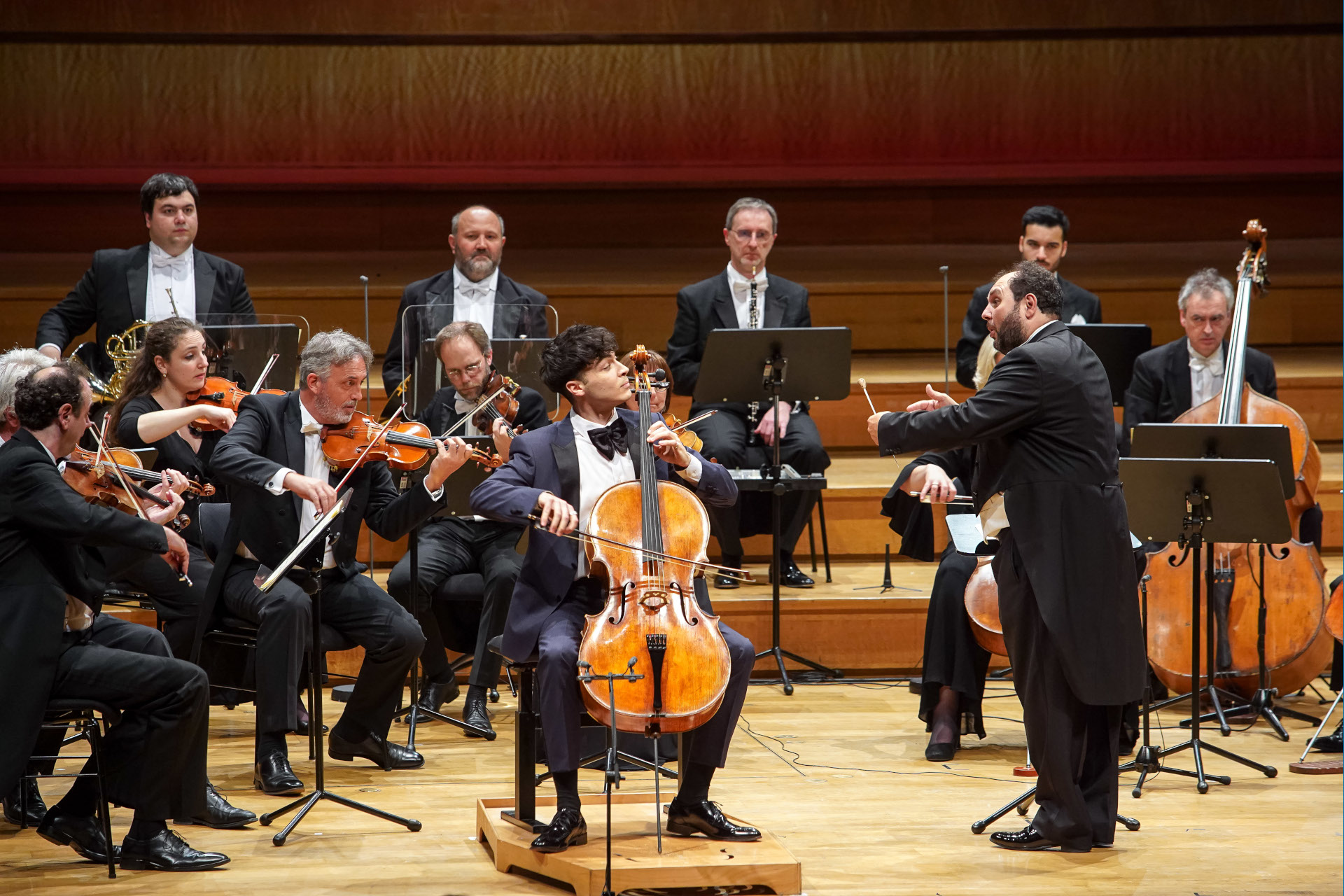
photo: © Derek Prager
THE INFLUENCE OF THE PERFORMER’S MATURITY ON THE PROGRAM CONCEPT
I had the opportunity to talk with Miša Majski about various topics and he mentioned this one. He told me: “You know, I’ve played Bach two, three, four times in my life, every time I record it, it sounds younger. In my twenties when I recorded it, I sound forty years older, I’m very proud of that fact.” Over time, interpretations change and people are always looking for something else, but I still don’t have that freshness at the age of twenty that he does at the age of seventy-two… 60 of which he spent on stage. However, I can fully understand what he wants to say – one always has to look for something fresh, to look for something new in the relatively limited repertoire that we cellists have, for example, compared to pianists; it is crucial for a more serious career. When it comes to the concept of the program, I think that the audience is tired of listening to Beethoven sonatas and Bach at every cello concert. As soloists, we have a role to create a program that will be interesting for the audience as well as for us. I don’t think it’s bad for the artists or the audience. It is important that it is designed with taste. In my opinion, many approach it “slightly tasteless” and then turn concerts into spectacles for a kitsch parade; I don’t agree with that at all and it’s not something I would ever do because it wouldn’t be authentic. Alternative and interesting programs are something that must be worked on; I already have several ideas for new seasons and projects.
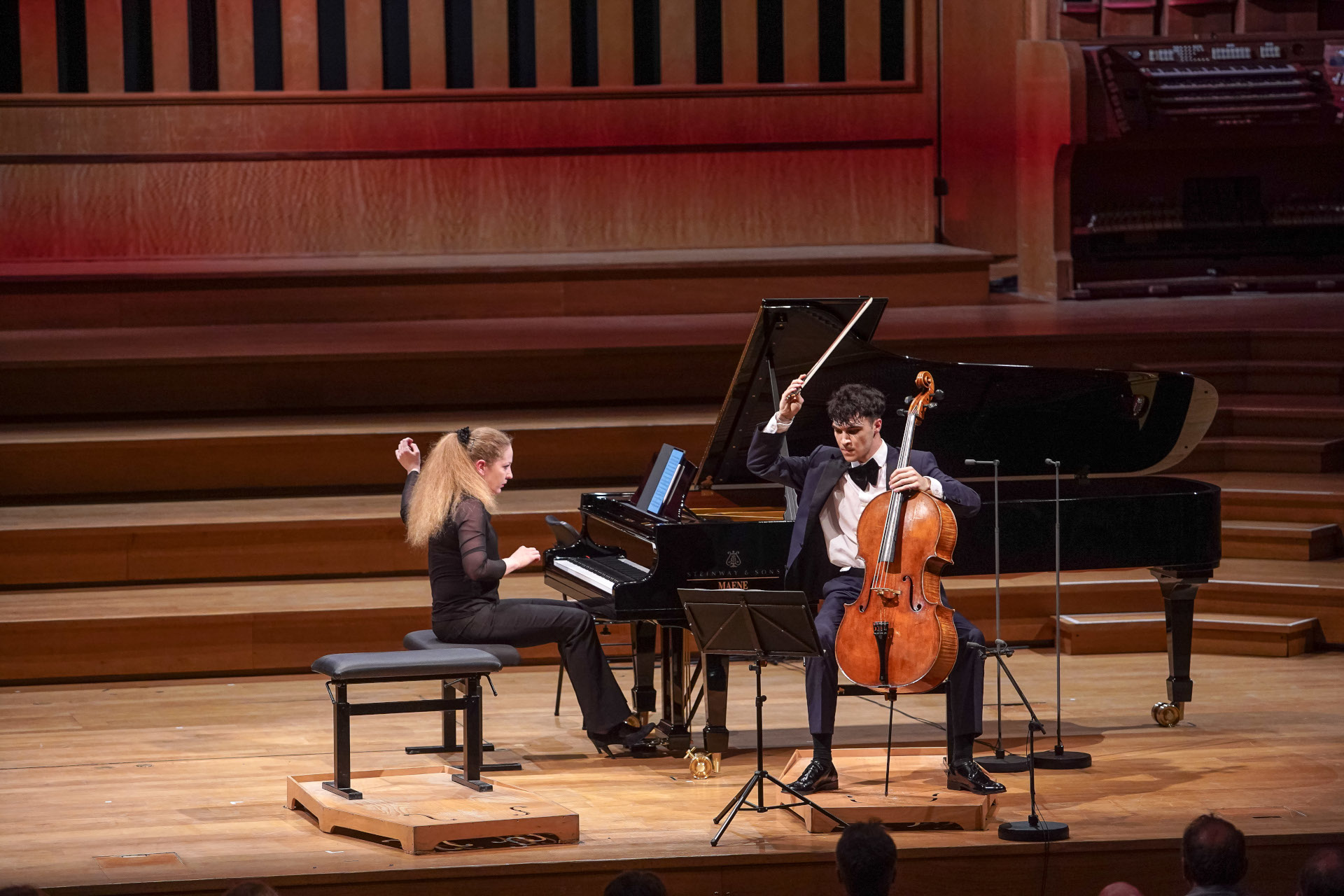
photo: © Derek Prager
INCREASING INFLUENCE AND PRESENCE OF SOCIAL NETWORKS
Everything has changed radically; a career is not built in the same way today as it was 40, 50, or even 20 years ago. In the last 10 years, a lot has changed due to social networks – the taste of the audience, but also the level and expectations that are increasing. In competitions, it is common to play something perfectly, it is considered to be the first level – “nothing special”. Social networks play a very important role, but if a person plays honestly, authentically, at the highest possible level and knows enough to move in those circles and maintain a conversation – things happen. From the period I spent in Kronberg, where I had fantastic concerts, I have many great impressions. I achieved wonderful cooperation with people there because I was authentic, prepared, but also very sociable and open. The presence of accompanying factors like Instagram, Facebook, online marketing is not unimportant, but it is not the essence and never will be for the work we do – which is art music. Popular music is something else, it’s not my field of interest, but in my profession it seems to me that quality is still crucial.
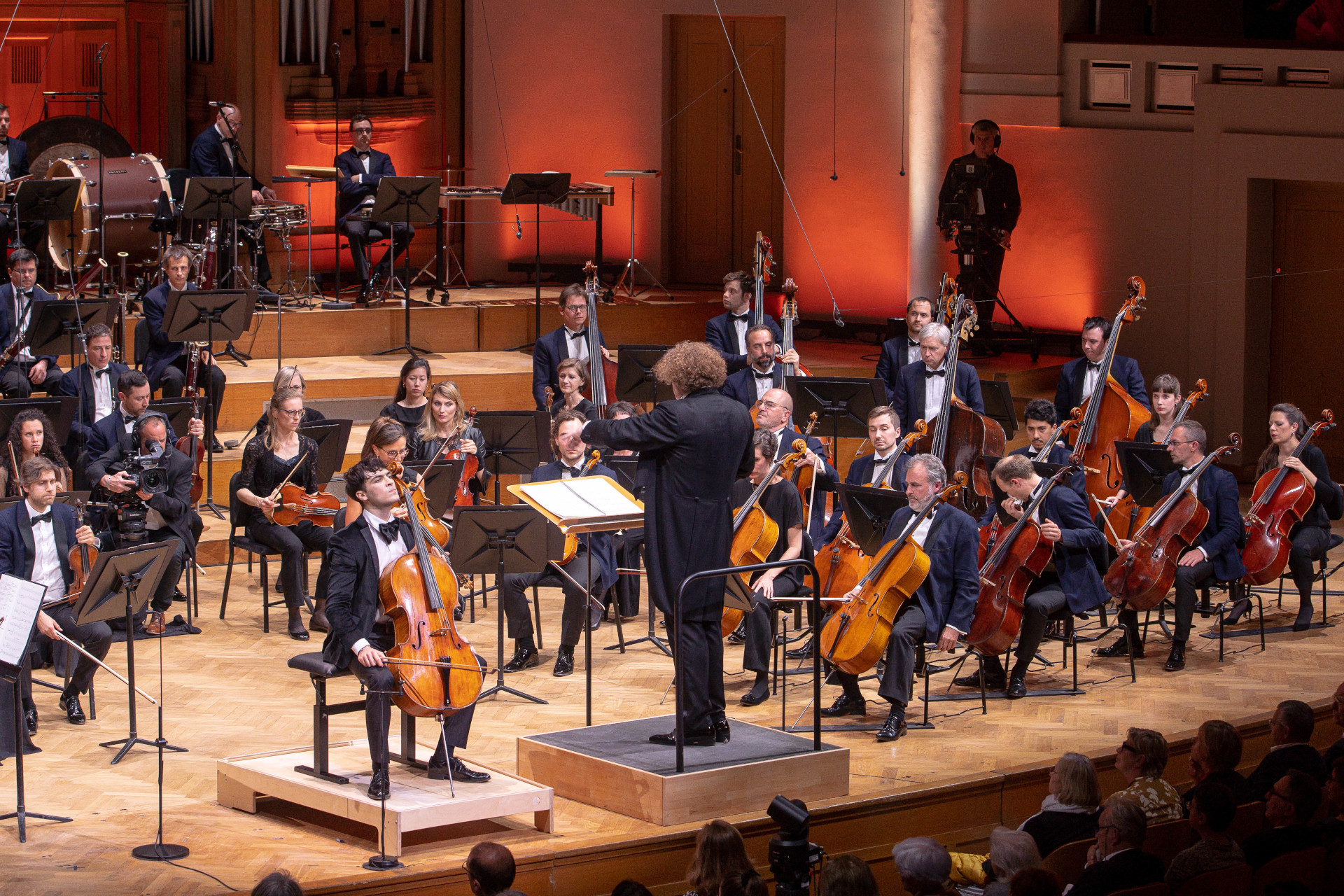
photo: © Derek Prager
STAYING IN KRONBERG
The Kronberg Academy is a prestigious institution founded by Rostropovich. Today it is the most prestigious faculty for string instruments. And there, every other year, a master class for cello is held in the form of a big festival, which is visited by 150 to 160 cellists from all over the world, 60 of whom have the opportunity to participate actively, that is, to work with the professors. I was accepted into the class of Professor Frans Helmerson, a legendary cellist, who also sat on the jury at the Queen Elizabeth Competition. I was honored to receive the “Frans Helmerson” award and to be chosen to play Haydn’s Concerto in D major at the final concert of the entire festival in the fantastic new hall. It is an amazing experience. I would say that Kronberg is a “hot spot” for cellism and for classical music.
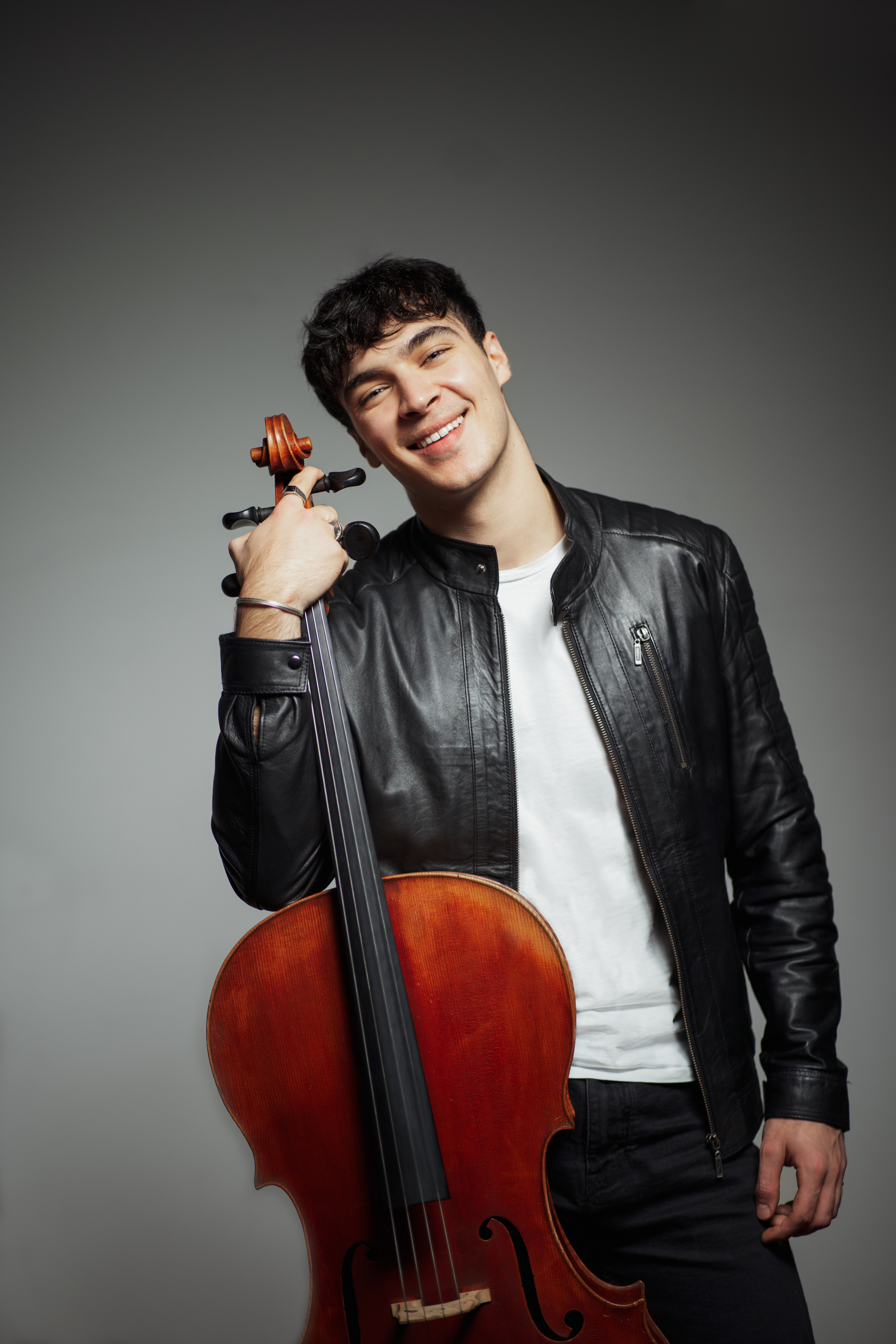
photo: © Clara Evens
COMPETITION AS THE ONLY WAY OUT OF ANONYMITY
I think it is possible without it, but by my example I see that it is an easier way to get out of anonymity, because competitions such as “Queen Elisabeth”, “Tchaikovsky”, “Paulo”, “Chopin” follow the whole world of classical music. Anyone who deals with it, especially those who have a say in it, follows it. When a person reaches the last stage of such a competition, then everyone listens to him, so in that sense it is a mitigating circumstance, but it is possible without it. Many important artists have made great careers without participating in competitions. Anyway, I don’t think it’s crucial, but it’s certainly much easier.
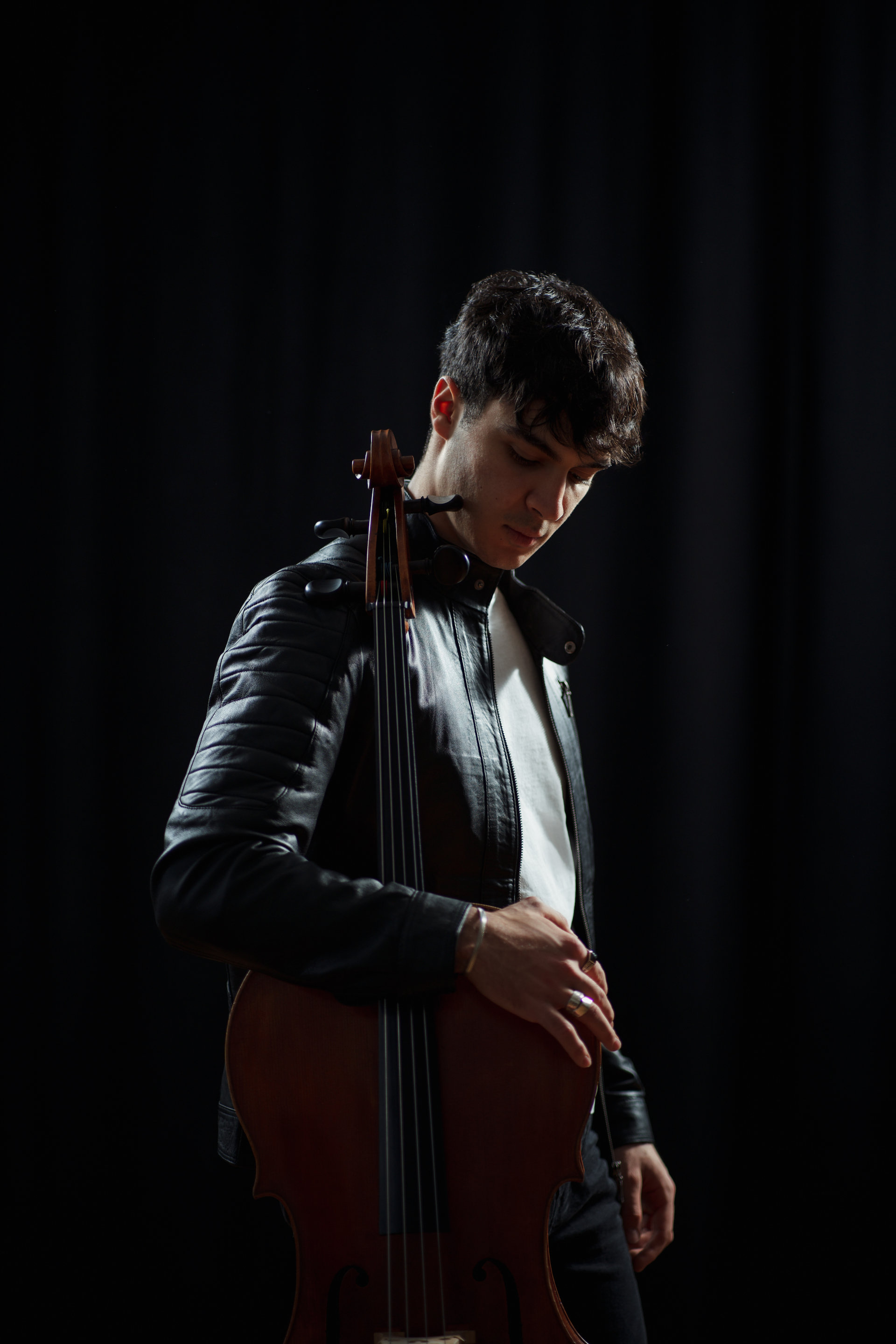
photo: © Clara Evens
VERSATILITY IN ART
Collaboration with Jacopo Godani gave me a different view of art. It’s one of the most beautiful projects I’ve had so far. Jacopo is a genius artist and visionary, someone who pushes boundaries, someone who sees 50 years into the future and someone who is able to bring together various elements of art. It is not only dance, there is also music, fashion, light, stage and he constructs and projects everything. It was an honor for me to collaborate with someone like him and to see his work process, not only his but also the dancer’s. Dancers are fascinating to me, they have a relatively short career, just like athletes, and they have their physical ability and the mind of an artist, which is an incredible combination. I appropriated that stage performance from them, my bow to the audience is specific and I picked it up from the dancers. Bach’s music, along with the dance, also completely changed my conception of the work in a positive sense, so that with the dance it gets an additional dimension. We got in touch through my good friend Jan Vogler, who is a fantastic cellist and soloist, and he was supposed to play a new project with the troupe, as they had already collaborated before. However, in that period he had a recording of Shostakovich’s concerto with the Mariinsky Theater Orchestra and that coincided with this project, so he recommended me to Jacopo as someone he knew had a very interesting interpretation of Bach. There were supposed to be eight concerts first, then we met, rehearsed, went to dinner, and that’s how 30, 40 concerts came out of eight… and we’re still in contact and continue to collaborate.
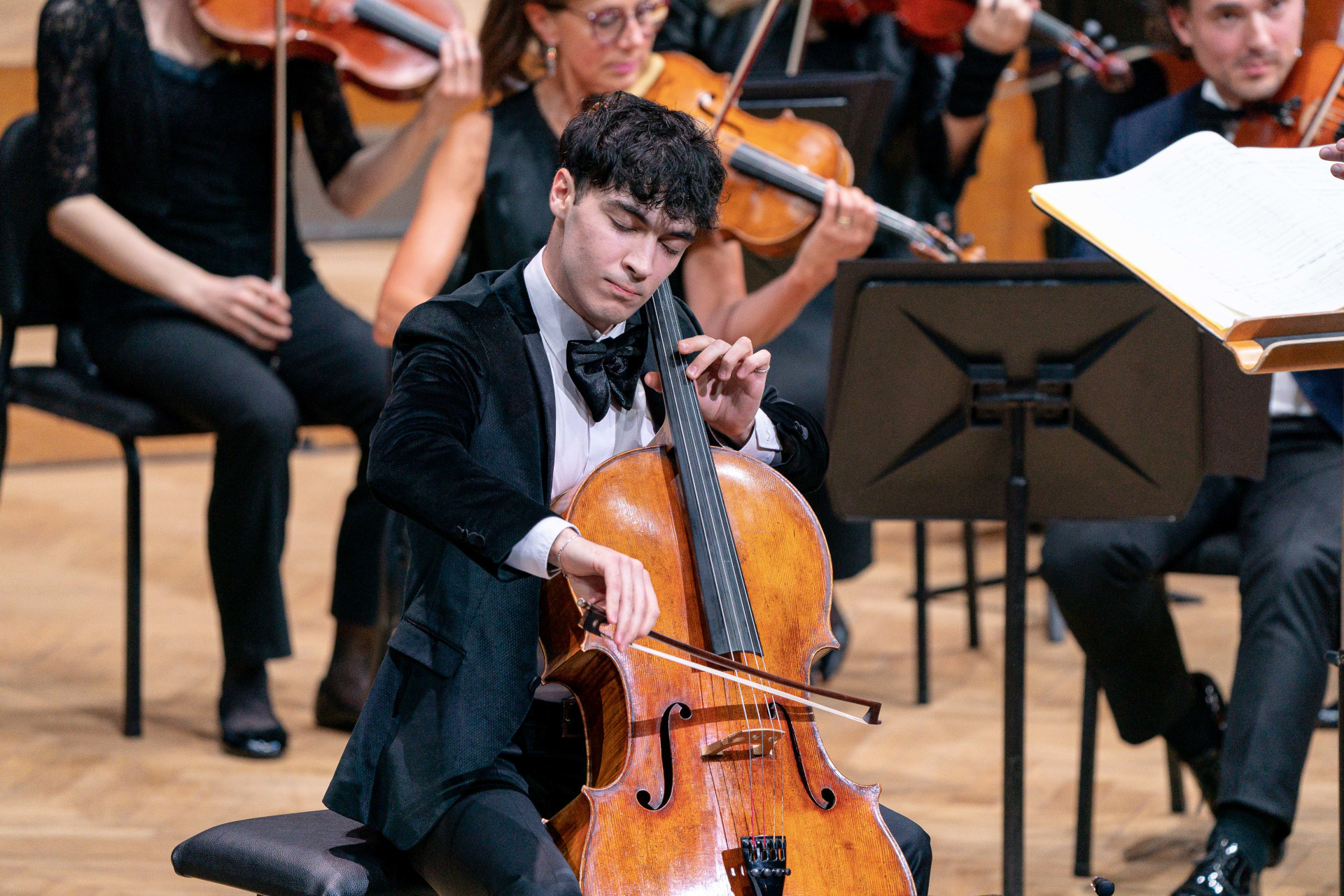
photo: © Derek Prager
PERFORMANCES IN BELGRADE AND CONCERT ANNOUNCEMENT
My performance at Cello Fest 2022 is an especially fond memory of mine. Dragan Suzuki Đorđević is trying to start this festival again, I was very glad to be able to help in that and to play the program, which I personally love very much, to my closest audience in Belgrade. The concert in the Belgrade Philharmonic Hall was very well attended and filled with great energy – I can say that it is one of the most beautiful memories. At the end of April 2023, I will perform with the Vojvodina Symphony Orchestra and maestro Bojan Suđić. We will be performing Dvořák’s Cello Concerto and I am very much looking forward to that. I’m getting ready for a series of concerts and it’s equally interesting to me, each one is different and special in its own way, especially in Serbia.
ACCESS TO ART ABROAD
I would say that public awareness of classical music is at a higher level abroad than in our country, and that this is reflected in the budget, number of festivals and education – of course in a positive sense. That was always interesting to me here in Germany, because in Belgrade, when you walk down the street with a cello case, people look at you a little strangely, and here it never happened to me. In Leipzig, people know that this is their culture and heritage. In contrast, in our country, the level of education in secondary music schools is at an incomparably higher level because they do not have counterpoint, harmony, forms in secondary school; what is normal for us, they get only in the third year of the academy and a lot of things are different. That’s why some other things are more advanced and different at the academy than here.
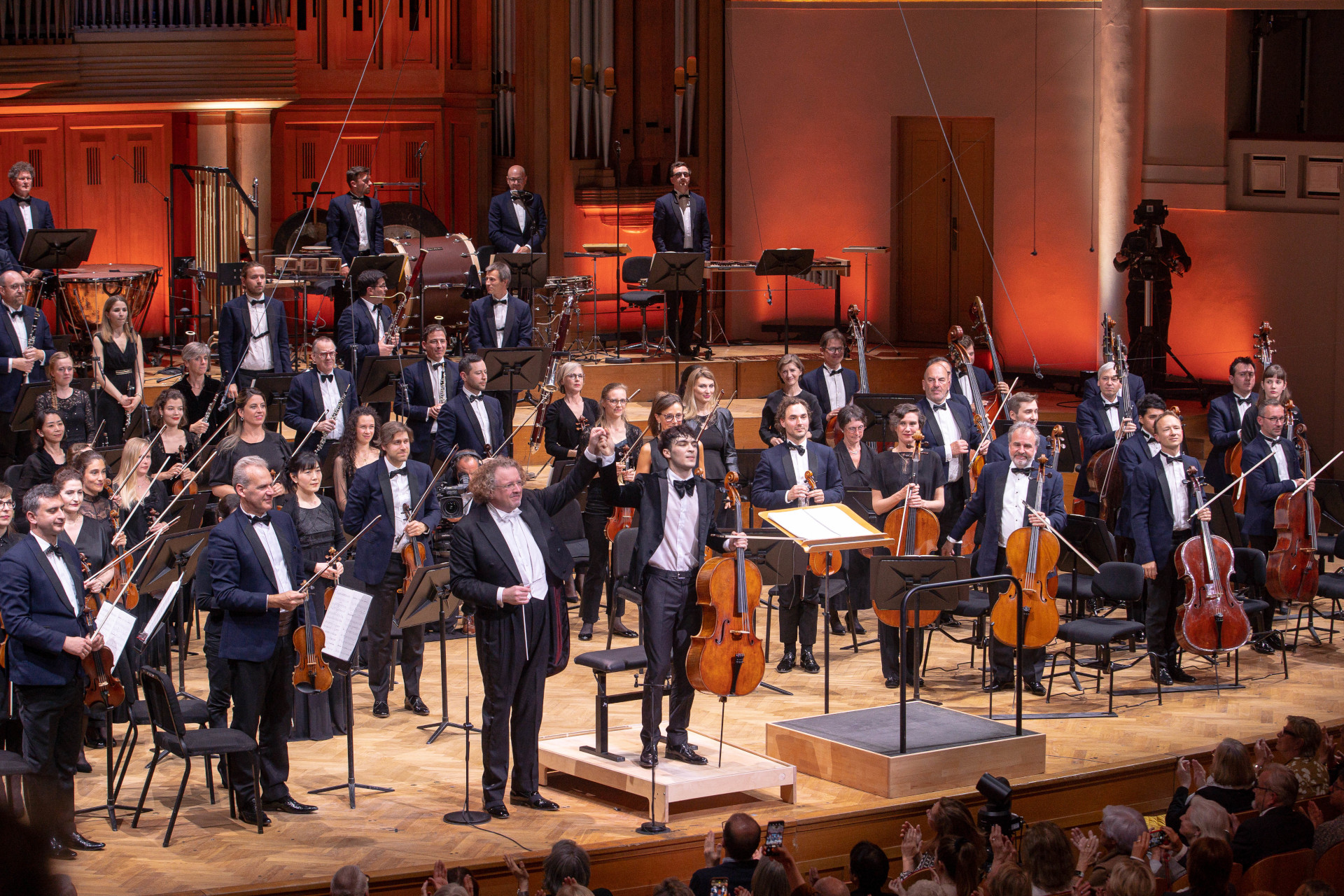
photo: © Derek Prager
ADVICE FOR THE YOUTH
I will give the same advice I always give to my 12-year-old brother who plays the violin – whatever you do in life, be it music, architecture, whatever, you have to be dedicated. It doesn’t matter where a person is, whether it’s Germany or Serbia, commitment is the key in every domain of life. Not only exercise, but also the music I listen to, the books I read, what I research, who I talk to, what I surround myself with, it all leads in the same direction, and it doesn’t matter what field you work in. So, my advice is – complete commitment to the profession. I have many hobbies – I like fashion, martial arts, I have been training Muay-Thai for a very long time, I like to play sports and socialize with people. Whatever the hobby is, I always make sure that it doesn’t take much time away from the essence – and the essence is what I do and that fulfills me the most.
Autor: Katarina Georgijević
Translation: Jelena Čolović
